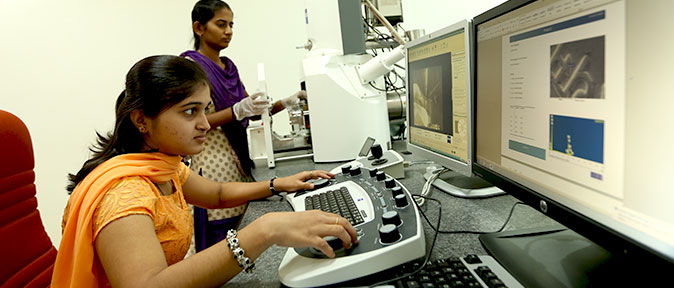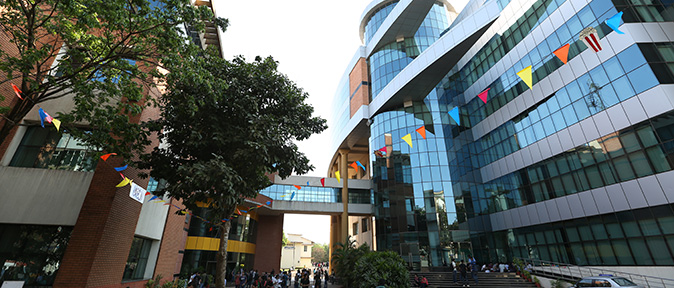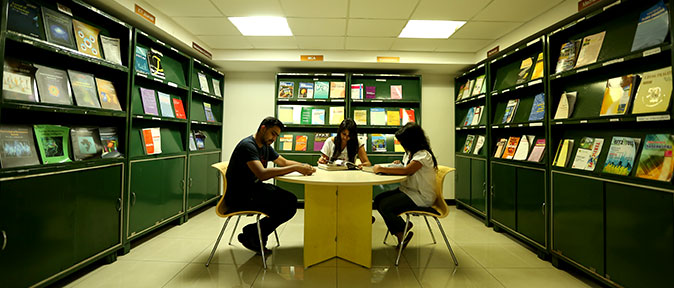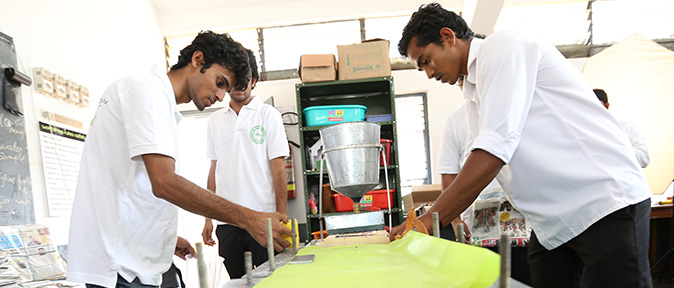Overview
The Department of Chemistry was established alongside the inception of the Manipal Institute of Technology (MIT) in 1957. Initially the department focused on providing foundational courses in Engineering Chemistry for B.Tech programs. Over time, it has evolved into a distinguished hub for education and research, now offering specialized postgraduate and doctoral programs in chemistry.
In 2009, the department launched its first postgraduate program, an M.Sc. in Chemistry with a focus on Organic Chemistry. In response to the increasing demand for advanced specializations, the department introduced M.Sc. Chemistry program with minor specialization in organic and Applied Chemistry in 2021. Today, the department offers two M.Sc. specializations—Organic Chemistry and Applied Chemistry and a comprehensive Ph.D. program in Chemistry, accommodating diverse research interests. With an annual intake of approximately 30 students in the M.Sc. programs, the department has produced over 300 postgraduate graduates and many of doctoral researchers. Currently, several research scholars are actively pursuing their Ph.D. degrees within the department.
The Department of Chemistry has made significant contributions to science and technology, as evidenced by its extensive publication record in reputed peer-reviewed journals and active participation in national and international conferences. The research spans frontier and interdisciplinary areas including organic synthesis, nanomaterials, medicinal chemistry, energy storage materials, corrosion inhibitors, smart materials and polymer composites. Faculty members and students have been recognized for their academic and research excellence, receiving prestigious accolades such as the Fellow of the Royal Society of Chemistry (FRSC) and the DST-Inspire Fellowship. The department has secured research grants amounting to approximately Rs. 2 Crores from prestigious funding agencies such as MNRE, BARC-DAE, UGC, and VGST. It has also established Memorandums of Understanding (MOUs) with leading industries like CIPLA and renowned R&D institutions such as Schneider Electric Global to promote collaborative research and development initiatives. The department organizes national/international conferences, guest lectures and international conferences, workshops, to promote knowledge exchange and skill development.
The M.Sc. curriculum is designed to align with the latest advancements, incorporating both industry and research perspectives. Graduates from the department are highly regarded for their academic excellence and have secured positions in leading industries, professional organizations, and academic institutions in India and abroad. Many renowned chemical industries and R&D centers actively recruit students through campus placements. Additionally, a substantial number of students have excelled in competitive exams such as GATE, SLET (KSET), and UGC-CSIR NET, with numerous alumni attaining prestigious roles in industry and academia.
Vision of the Department: To achieve excellence in chemistry education by integrating cutting-edge research, innovation, and teamwork. The department is committed to fostering a dynamic learning environment that embraces emerging technologies, promotes scientific discovery, and prepares students to tackle real-world challenges in industry, academia, and society.
Mission of the Department: To educate and empower students with a strong foundation in chemistry, fostering a dynamic learning environment that integrates emerging technologies, value-based education, and innovative research. The department aims to cultivate creativity, critical thinking, and teamwork, enabling graduates to address societal challenges and contribute meaningfully to science, industry, and academia.
Programmes Offered:
M.Sc. and Ph.D. programs.
M.Sc. in Chemistry
The Master of Science (M.Sc.) in Chemistry program is designed to equip students with a strong foundation in theoretical and applied chemistry, focusing on research-driven learning.
Eligibility:
Bachelor’s degree in chemistry or related fields with a minimum required percentage.
Key facilities include:
Laboratories: Advanced laboratories providing hands-on training in cutting-edge experimental techniques.
Innovation Centre: A multidisciplinary innovation hub for fostering research and development.
Libraries: Comprehensive library resources with an extensive collection of books, journals, and reference materials.
Computing Facility: A fully Wi-Fi-enabled campus with modern computing and digital infrastructure.
Synthesis Lab: Equipped with advanced tools like microwave synthesizers and parallel synthesizers for modern chemical synthesis.
Instrumentation Lab: Features sophisticated instruments, including electrochemical workstations, UV-Visible and FTIR spectrometers, DSC, TGA, flash chromatography, and more, Schrodinger work station, G.M Counter, polarising microscope, spectrofluorometer
These facilities ensure that students and researchers are well-prepared to address both academic and industry-oriented challenges.
Programs
The Department of Chemistry, MIT offers the following programs:
M.Sc- Chemistry
Link for Outcomes-Based Education (OBE) M.Sc. (Chemistry) Program
Ph.D
Faculty
Facilities

Laboratories
World-class laboratories give learning a practical dimension

Innovation Centre
State-of-the-art Innovation Centre to facilitate multi-disciplinary research

Libraries
Libraries have excellent resources for reference and study

MUTBI
Paper tree - A green initiative by MIT students of MUTBI

Computing Facility
Wi-fi campus with modern computing and digital facilities
Research & Publications
The areas of research are liquid crystals, corrosion studies, polymer chemistry, bio organic & medicinal chemistry, composite materials, organic syntheses, organo-metallic chemistry and polymer electrolytes.
Testimonials

For me MAHE is a place with ample opportunities to grow professionally and personally.
Ashna Ranjan
MIT Manipal

Learning is an awesome experience at Manipal. This is the best place to be for students.
Rudi Rajkumar
MIT Manipal

MAHE is giving us wings to fly and providing us with resources necessary to make it big in life.
Shashank Tulsyan
MIT Manipal

MAHE has taught me the value of organisation and to be systematic in all my work.
Siddharth Bhasin
MIT Manipal

My experience at MIT has been great from the beginning.
N.J.Nischal
MIT

I’m glad I choose Manipal University.
Chaitanya Chauhan
Mechanical Engineering






